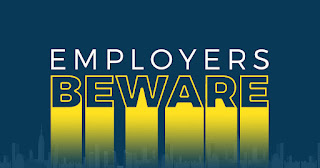Governor Hochul enacted significant legislation this week marking a pivotal moment for freelancer workers across New York State by signing BillA06040, known as the "Freelance Isn't Free Act".
Before the introduction of this law (Labor Law 191-d), problems for freelancers included:
- Delayed or Non-Payment: Without legal mandates, there was little to no consequence for payment terms leaving freelancers financially vulnerable.
- Lack of Written Contracts: Many freelance engagements proceeded without formal written contracts, leading to misunderstandings and disputes about work scope, payment terms, deadlines, and other essential aspects of the work arrangement.
- Limited Recourse for Contract Violations: Prior to this law, there was no straightforward legal recourse if an agreement was violated. Pursuing legal action was often costly and time-consuming, making it an impractical option.
- Absence of Standardized Contract Terms: With no standardization of contract terms, freelancers often agreed to unfair or exploitative conditions due to lack of industry standards or fear of losing work.
- Retaliation: Freelancers often hesitated to assert their rights or demand fair treatment due to the fear of being blacklisted or losing future work opportunities
- Administrative Burdens: Freelancers were often burdened with the responsibility of chasing payments and resolving disputes on their own
The goal of the Freelance Isn't Free Act law is to ensure that all laborers get the right to fair and timely pay. Freelancers who are denied rights can claim liquidated damages plus attorneys fees making it easier to pursue a claim against the hiring party (previously, the economics of a lawsuit often effectively eliminated the option for freelancers to enforce their rights to get paid; now that is changed).
